Unexpected deepening of the crisis in Egypt
Adelina Marini, February 11, 2011

![]() 18:16 Literally minutes after the publication of this article it became clear that the Egyptian president, Hosni Mubarak, had resigned and had transferred governance to the military. This was reported by vice president Omar Suleiman. The protesters are jubilating.
18:16 Literally minutes after the publication of this article it became clear that the Egyptian president, Hosni Mubarak, had resigned and had transferred governance to the military. This was reported by vice president Omar Suleiman. The protesters are jubilating.
I did not expect exactly this to happen late in the evening of February 10th, after a whole day of rising tension and speculations. Reports of a forthcoming resignation of the 82-year old president Hosni Mubarak were coming from everywhere. Even his own party was calling on him, in one way or another, to resign in order to give way for fresher forces, so that the situation could calm down in the country and the streets of 20-million Cairo. The entire world was watching last night tensely how more protesters were gathering at the Tahrir Square, anticipating Mubarak's speech.
The mob was shouting slogans "Mubarak leave", and the United States and the European Union were feverishly calling for a smooth transition. Even the army got involved in rising the tension by, after a session of the High Military Council, it made a polysemantic statement live on the Egyptian national TV, saying that the army supported the legal demands of the protesters. Word started spreading up of a quiet military coup, which would have been practically a good possibility for the stabilisation of the country, which currently is baring the nerve of the entire Middle East.
This enhanced even further the expectations that President Mubarak would indeed step down. Furthermore, rumours started spreading that his national address was pre-recorded and that the head of state had actually left the country. But the denouement late in the evening was different. Mr Mubarak appeared on state TV and addressed directly the protesters at Tahrir Square and the entire country. "I am addressing you all from the heart, a father's dialogue with his sons and daughters", the 82-year old president started his address. Further on Mubarak pledged under 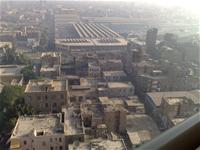 conditions to stick to his promises, ensuing from his firm beliefs that the intentions of the protesters were clean and honest. "Your demands are just and legitimate demands", he added.
conditions to stick to his promises, ensuing from his firm beliefs that the intentions of the protesters were clean and honest. "Your demands are just and legitimate demands", he added.
It was not clear whether the president truely believed in the pure intentions of the protesters and whether his commitment would be kept, if it proved true, but he stated that he was not ashamed to listen to his country's youth and to communicate with them. Much bigger shame he would feel to listen to foreign dictates no matter of their source or pretext, Mr Mubarak said. He promised the peaceful transition of power to start by September. In the foundation of such a transition would be amendments to the Constitution, which were a major demand of the protesters. The establishment of two special committees is forthcoming that would tackle the Constitutional amendments, as Mubarak guarantees in his speech that he has chosen for member of these committees figures, well known in Egypt with their independence and experience in Constitutional law, and judges.
Besides, as a next step, Mubarak announced that he wanted amendments and even deletion of some Constitutional articles, referring particularly to his name. The deletion of article 179 from the Constitution is aimed at reaching a balance between protection of the country from terrorism and civil liberties and rights, which opens the door for the removal of the emergency law, imposed on the country for almost 30 years and for which removal both the protesters and the international community insist.
In the end of his speech Mubarak falls into revelation by telling how, as young, he learnt Egyptian military honour, allegiance and sacrifice for his country; he shares that he has spent his entire life protecting his country and its sovereignty and that the happiest day in his life was when he raised Egypt's flag over Sinai (which Egypt got after the peace agreement with Israel). However, he declares that he is fully aware of the seriousness of events and this is why he feels fit to delegate presidential powers to his vice president, as the Constitution provides.
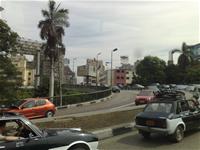 Mubarak turned to the protesters with the words that the Egyptians had to prove that they did not serve anybody and that they did not take instructions from anybody and that only citizens' demands and the pulse of the street formed the government's decisions.
Mubarak turned to the protesters with the words that the Egyptians had to prove that they did not serve anybody and that they did not take instructions from anybody and that only citizens' demands and the pulse of the street formed the government's decisions.
Mubarak's speech, listened to at the Tahrir Square, caused anger among protesters and expectations for the protests to increase on February 11th after the Friday prayers.
This move of the long-serving president (Mubarak rules for more than 30 years) could prove to be a big risk, especially after the army announced at noon on February 11th that it backed the president and would guarantee "free and fair" elections in September. The risk comes from the fact that after 18 days of protests and serious tension rising on Friday because of the expectation that Mubarak would step down, there is a danger protests to go out of control, moreover after a lot of radical elements got involved in them. The decision of the army to support Mubarak is to some extent relieving in terms of guaranteeing Egypt's stability.
The controversial indications and the step back, caused by the Egyptian president's statement, enraged the leading international powers too. In a statement released last night, EU's High Representative for foreign affairs, baroness Catherine Ashton, said that the EU welcomed the Egyptian people for the courage to stand for democratic change in a peaceful manner and with dignity. "The demands and expectations of the Egyptian people must be met. It is for them to judge whether the steps announced by President Mubarak fulfill their expectations and aspirations. President Mubarak has not yet opened the way to faster and deeper reforms. We will pay close attention to the response by the Egyptian people in the coming hours and 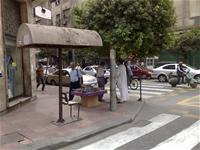 days", baroness Ashton points out.
days", baroness Ashton points out.
She also called on the Egyptian authorities and the army to protect the peaceful demonstrators and to act calmly and with restraint, as well as to lift as soon as possible the emergency law in the entire country.
American President Barack Obama was much more sharper in his reaction, by stating that the Egyptian people had been told that there would be a transition of authority but it was still not clear whether this would happen soon, whether it would be genuine and enough. "Too many Egyptians remain unconvinced that the government is serious about a genuine transition to democracy, and it is the responsibility of the government to speak clearly to the Egyptian people and the world". Mr Obama called on the government in Cairo to quickly explain the changes that it undertook and to spell out clearly and unequivocally the process step by step that would lead to democracy and representative government, that the Egyptian people wanted.
One of the countries which is probably following with great tension the situation in Egypt is Israel. The Minister of Defence of the country, Ehud Barak, said, quoted by the BBC, that usually revolutions erupted initially with idealistic goals but sooner or later it proved that the feeling to kill and be killed takes superiority. Israel's biggest concern is if in neighbouring Egypt the power is to be taken by hostile towards the Jewish state powers that could decide to revoke the Camp David agreement, of which spoke in an interview for euinside the Bulgarian Minister for Foreign Affairs, Nickolay Mladenov, too.
The protests in Egypt continue and look bigger than before. The state-owned TV station is now besieged, as well as the building of Parliament, guarded by tanks and barbed wire.
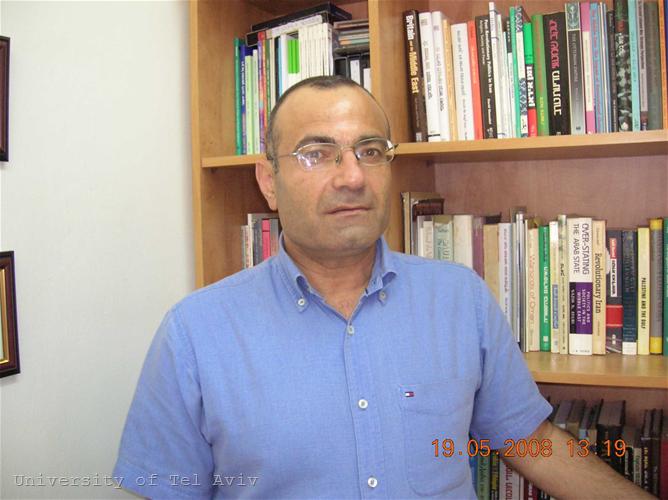 | © University of Tel Aviv
| © University of Tel Aviv | © Syrian Presidency
| © Syrian Presidency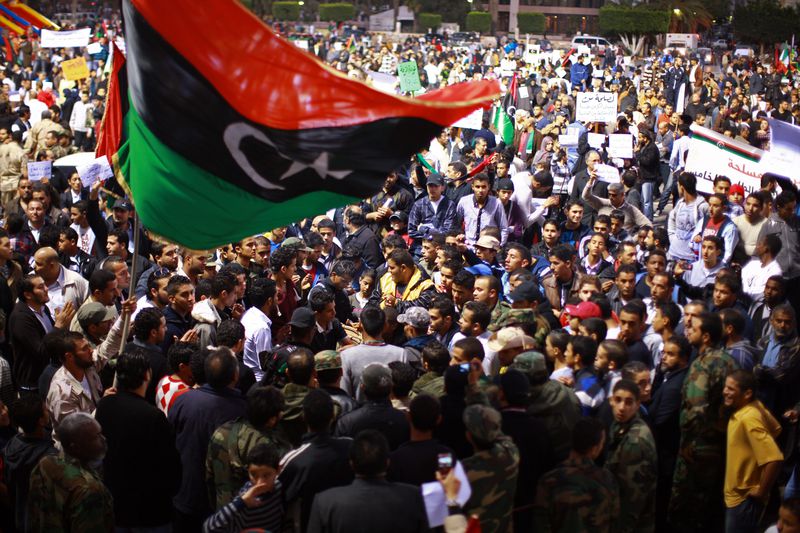 | © UN
| © UN